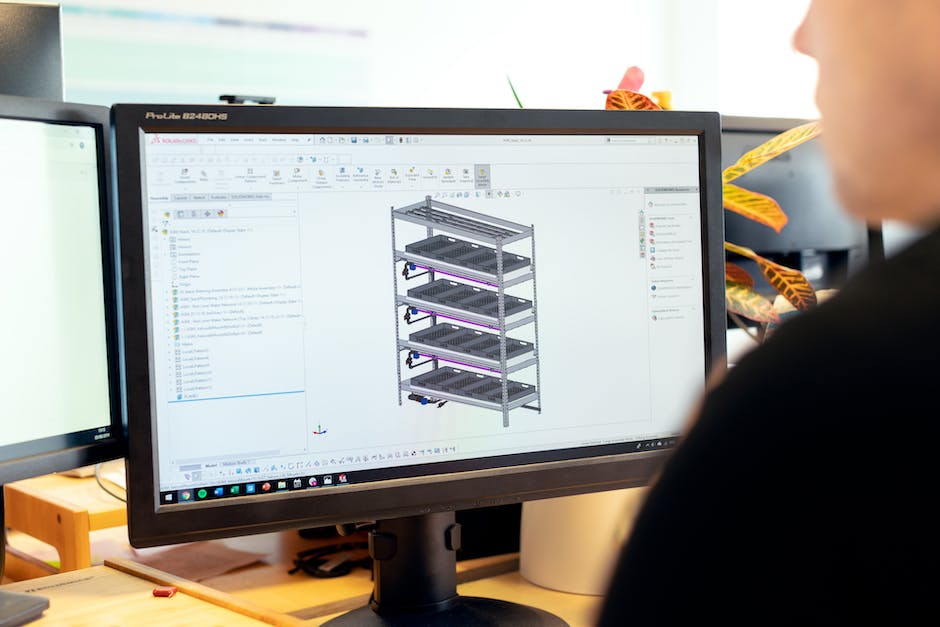Bespoke Agriculture Software Software
What is Agriculture software?
Bespoke agriculture software refers to software that is specifically developed for the agriculture sector with the aim of enhancing and optimizing the management of farming operations. This category of software covers a wide range of functions, including farm accounting software, crop management software, livestock management software, machinery management software, and much more.Contact us if you are wanting to have a bespoke Agriculture Software application developed?
The key purpose of agriculture software is to help farmers and agricultural businesses to streamline their operations, increase efficiency, and ultimately boost productivity and profitability. With the help of bespoke software, farmers can manage everything from crop yields and soil testing to herd health and herd management, all in one place.
Some of the typical uses of agriculture software include monitoring crop growth and nutrient levels, tracking livestock health and feed quality, managing machinery and equipment, and collecting data on weather patterns and other environmental factors that can affect farming operations. By providing real-time updates and analytical insights, bespoke software allows farmers to make more informed decisions and optimize their operations for maximum output.
In summary, agriculture software is an essential tool for modern farmers and agricultural businesses. By harnessing the power of technology, bespoke software helps farmers to optimize their operations, reduce costs, and ultimately grow their businesses in a sustainable and profitable way.

What are the main functions of Agriculture software?
Agriculture software typically comprises several key modules, each providing different functionality to support farmers and farm managers with their operations. These modules include:1. Crop Monitoring and Management - This module enables farmers to manage and monitor crops by providing real-time information on pests, diseases, soil moisture, and other vital factors. Dashboard functionality allows farmers to view field mapping and data analytics to make data-driven decisions about crop health.
2. Livestock Management - Livestock management software helps keep track of herd health, breeding cycles, and feed management. The software provides real-time information on the animals' location, feeding, breeding, and health status, making it easier for farmers to make informed decisions.
3. Weather Forecasting - Agriculture is heavily dependent on weather patterns, and having access to accurate weather data helps farmers plan ahead. This module provides real-time weather data, including temperature, wind speed, and precipitation, along with long-term forecasts, enabling farmers to plan their planting schedules and other critical farm tasks.
4. Inventory Management - Agriculture software also includes inventory management functionality to help farmers track the quantity and quality of their crops, including their current storage status. This module helps farmers manage their stock accurately, which is essential for meeting customer demands.
5. Accounting and Finance - Agriculture businesses have unique financial and accounting needs due to factors such as crop seasonality, harvest timing, and compliance regulations. This module helps farmers manage these complexities with real-time updates on expenses, revenues, and other critical financial metrics, along with automated reporting and analysis tools.
Overall, agriculture software provides farmers with access to critical data and functionality to help them manage their farms efficiently, from planting to harvest to sales and beyond. These modules work together to create a fully integrated solution that supports every aspect of farm management, enabling farmers to optimize their operations and drive profitability.
Data / systems integration
Agriculture software is often integrated with a range of different systems and data sources in order to provide a comprehensive overview of a farm or agricultural operation. Commonly integrated systems include weather data sources, geospatial data sources, crop information systems, yield monitoring systems, and farm management systems. Other types of data that might be integrated include livestock data, water usage and quality data, and market data.APIs and other tools are frequently used for this integration, as they enable data to be seamlessly shared and processed between different systems. When selecting APIs and tools for integration, considerations should include compatibility, data security, scalability, and ease of use. It is important to ensure that data is managed and accessed securely, with appropriate access controls in place. Factors such as cost and support requirements should also be taken into account when selecting the tools and APIs to use for integration.
Overall, the successful integration of agriculture software with other systems and data sources has the potential to provide significant benefits to agriculture businesses, enabling more accurate monitoring and management of operations, increased efficiency and productivity, and enhanced decision making.
Who uses Agriculture software?
Organizations within the agriculture industry are the primary users of agriculture software and farm accounting software. These organizations can range from small family-run farms to large-scale agribusinesses. Additionally, organizations involved in the agricultural supply chain, such as distribution companies and food processors, may also use these types of software. The market for agriculture software and farm accounting software is not limited to a specific vertical, as agriculture is a broad and diverse industry covering everything from crops to livestock. However, the primary users of these software solutions are typically businesses involved in planting, growing, and harvesting crops or raising animals for food production. The size of the organization can also vary, from small family farms to large corporations with extensive agricultural operations.
Benefits of Agriculture software
Organisations use agriculture software to streamline their operations and increase efficiency. Key benefits include accurate data management and record keeping, improved decision making through data analysis, streamlined inventory and asset management, and simplified accounting and financial management. Agriculture software also enables farm owners to monitor weather patterns and optimize crop yields, leading to increased profitability. Additionally, the software can help track environmental and sustainability metrics to ensure agricultural practices are in line with industry standards and regulations. Overall, custom agriculture software can provide a range of benefits to business owners by improving productivity and profitability, simplifying operations, and enhancing decision making capabilities.Some of the players in the Agriculture software market
Here are some of the main brands of agriculture software and farm accounting software that you may want to consider, along with their key benefits and shortcomings:1. FarmLogs
- Key benefits: Easy to use, provides real-time insights on crop growth, emphasis on data analysis
- Shortcomings: Limited integrations with other software, some users report occasional glitches
2. Agrivi
- Key benefits: Comprehensive management of farm activities, offers mobile and web platforms, customizable for specific needs
- Shortcomings: Takes time to learn and set up, higher cost compared to other options
3. Trimble
- Key benefits: Offers a wide range of precision agriculture solutions, integrates with multiple software and hardware options
- Shortcomings: Expensive, some customers report difficulty with customer service
4. QuickBooks
- Key benefits: Popular accounting software, offers customized agriculture-specific templates, integrates with other software options
- Shortcomings: Limited features for agriculture-specific needs, not as comprehensive for farm management
5. FarmBooks
- Key benefits: Specifically designed for agriculture businesses, offers tracking for livestock and crops, integrates with QuickBooks
- Shortcomings: Limited integrations with other software, may not be suitable for larger farms
Keep in mind that each software has its own strengths and weaknesses, and it ultimately depends on your specific needs and budget. It's also important to pay attention to customer feedback, as it can provide insight into potential issues or benefits you may encounter.
Benefits of off-the-shelf Agriculture software
Off-the-shelf agriculture software offers several benefits to business owners, including cost-effectiveness, ease of use, and a shorter implementation time. Since these software solutions are pre-built and readily available, they are often less expensive than custom software development. This means that businesses with smaller budgets can still have access to specialized software that can improve their agricultural operations. Additionally, off-the-shelf agriculture software is designed to be user-friendly, making it easier for business owners to navigate and learn how to use. Finally, since the software is pre-built, businesses can start using it right away, avoiding the longer development time that accompanies custom software projects.Limitations of off-the-shelf Agriculture software
Off-the-shelf agriculture software can provide a quick and easy solution for farmers looking to streamline their business operations. However, there are limitations to using pre-packaged software that should be considered before investing in a system.Firstly, off-the-shelf agriculture software may not meet the specific needs of a particular farm. For example, a vegetable farm may require software that tracks specific crop yields and sales, while a livestock farm may require software that records animal health and breeding records. Pre-packaged software may not have the necessary features to meet these unique requirements.
Secondly, off-the-shelf software may not integrate with existing hardware and systems on the farm. This can lead to a fragmented system that requires additional work to integrate data and streamline processes. It also limits the potential for automated data collection and decision-making.
Thirdly, updates and maintenance for off-the-shelf software can be limited, leaving farmers with outdated or unsupported systems. This can impact the ability to accurately track and analyze data, as well as increase the risk of security issues.
Lastly, off-the-shelf software may lack the flexibility for future growth and expansion of the farm. As business needs change and operations grow, the software may not be able to adapt to new requirements and may need to be replaced, leading to additional costs and disruption.
Overall, while off-the-shelf agriculture software may appear to be a cost-effective solution, it is important for business owners to carefully consider the limitations and potential issues before making a decision to invest in a custom software solution.
Is bespoke Agriculture software a viable option?
Bespoke, or partially bespoke, agriculture software can bring a host of benefits to business owners who are looking to streamline their operations and increase profitability. Firstly, bespoke software is built to fit the exact needs of a business, meaning it can provide greater efficiency and accuracy when it comes to managing crops, livestock, and finances. This can lead to increased productivity, lower costs, and improved profitability.Examples of successful use cases include Gloo Farms, who worked with a bespoke software development company to develop an end-to-end solution for managing their diverse farming operations. The software helped Gloo Farms to optimize their resources and make more informed decisions about planting, harvesting, and selling their crops. Another example is Hectare Agritech, who developed a bespoke software solution to help farmers manage their financial and logistical operations. The software allowed farmers to track their spending, optimize their supply chain, and improve their profitability.
The benefits of bespoke agriculture software are numerous. For one, it can help businesses to manage their operations more efficiently and effectively, improving productivity and increasing profitability. Additionally, bespoke software can be tailored to meet specific business needs, meaning it can provide greater accuracy and versatility than off-the-shelf solutions. Finally, bespoke software can be designed to integrate with existing systems, allowing businesses to streamline their operations and reduce administrative overheads.
In conclusion, bespoke agriculture software can bring significant benefits to businesses looking to optimize their farming and financial operations. By working with a trusted development partner, business owners can design a solution that fits their exact needs, boosting productivity, profitability, and competitiveness in a rapidly changing market.

Fun facts about Agriculture software
Agriculture software has been on the rise for some time now, with an increasing number of farmers and producers relying on it to manage their operations. In fact, the global market for agriculture software is projected to reach over $8 billion by 2024.One of the main advantages of agriculture software is that it enables farm owners to streamline their processes and make better business decisions. For instance, farm accounting software enables farmers to track expenses, monitor cash flow, and generate financial reports with ease, helping them to make informed decisions about their operations.
In addition to accounting, there are many other types of agriculture software available that can help farmers manage their land and crops more efficiently. For example, precision farming software uses data such as soil composition and weather patterns to optimize planting, watering, and harvesting, resulting in higher yields and a better bottom line.
Another interesting trend in agriculture software is the increasing use of mobile apps. Many farmers now rely on apps to access information such as weather alerts, market prices, and planting recommendations while on the go. This trend is likely to continue as more farmers adopt smartphones and tablets as essential tools of the trade.
Ultimately, the benefits of agriculture software are clear: it helps farmers save time, reduce waste, and make more informed decisions about their operations. For any business owner considering custom agriculture software, these trends and statistics suggest that the investment could be a wise one.
Agriculture software FAQ
1. What are the benefits of having a bespoke agriculture software developed for my farm/ business?Having a bespoke agriculture software developed can bring a multitude of benefits to your farm or business. These benefits can include increased efficiency, better communication, reduced costs, higher accuracy, improved record-keeping, and much more. A bespoke software can be specifically tailored to meet your unique requirements and streamline your operations, providing greater control and insight into your business.
2. How long does it take to develop a custom agriculture software?
The timeline for developing a custom agriculture software can vary depending on the complexity and size of the project. Some projects can be completed within a few weeks, while others may take several months. It is important to have a clear understanding of your requirements and expectations from the beginning of the project to ensure the software is developed within a reasonable timeframe.
3. Can a custom agriculture software integrate with my existing systems?
Yes, a custom agriculture software can be developed to integrate with existing systems. Through careful planning and collaboration, our development team can design and build software that is compatible with the systems you are currently using, ensuring a smooth transition and avoiding unnecessary downtime.
4. What kind of features can be included in a custom farm accounting software?
A custom farm accounting software can include a range of features such as financial record-keeping, payroll management, tax reporting, invoice generation, and much more. The software can be tailored to meet the specific needs and requirements of your farm or business, making it an essential tool for managing finances and keeping track of important financial information.
5. How do you ensure the security of my data when developing a custom agriculture software?
Data security is a top priority when developing any software, including agriculture software. Our development team follows best practices and adheres to industry-standard security protocols to ensure all data is secure and protected. We use encryption, firewalls, and other security measures to safeguard your data against unauthorized access or theft.
6. Can I make changes to the software after it has been developed?
Yes, as a bespoke software development company, we provide ongoing support and maintenance. This includes the ability to make changes to the software if needed. We also offer training and support to ensure that you are able to use the software effectively and get the most out of it.
7. What are the development costs for a custom agriculture or farm accounting software?
The development costs for a custom agriculture or farm accounting software can vary depending on the complexity and scope of the project. It is important to discuss your requirements with our development team to receive an accurate cost estimate. However, it is worth noting that investing in a custom software can offer significant long-term benefits and savings when compared to using off-the-shelf software that may not meet all your specific requirements.
Next Steps?
Are you a business owner in the agriculture industry struggling to keep up with the demands of modern technology? Maybe you're using outdated software that no longer meets your needs, or maybe you're relying on manual processes that are slowing you down. Whatever the case may be, there is a solution: bespoke agriculture software.With a custom software solution, you can streamline your operations, manage your finances more effectively, and make better decisions based on real-time data. And the best part? You'll have a solution that is tailored specifically to your business needs, rather than a one-size-fits-all approach.
If you're considering having bespoke agriculture software developed, or if you need some systems integration or data migration work undertaken, then now is the time to take action. Don't let outdated technology hold you back any longer. Contact us today to learn more about how we can help you take your business to the next level. Our expert team of developers and market specialists are here to answer any questions you may have, and to help you develop a solution that meets your precise needs. Let's work together to build a better future for your business in the agriculture industry.
Read more about the main software category Other Applications.
Other services in Other Applications category:
Want a quick quote for the development of custom Agriculture Software Application?
Contact us to discuss your questions about bespoke Agriculture Software Applications.
